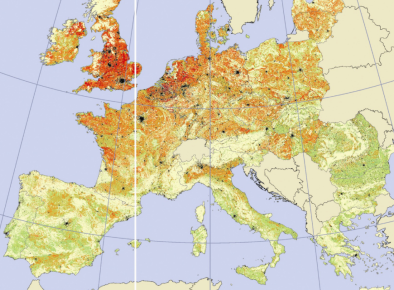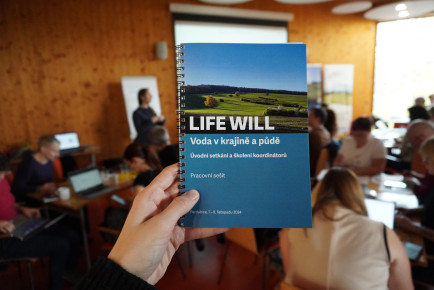WORLD SOIL DAY: WHERE FOOD BEGINS 🌱🍃🌾
Published: Dec 5, 2022 Reading time: 4 minutes Share: Share an articleSoil, we all depend on it, and yet we take it for granted. This is why it is subject to degradation worldwide, and in some places, it is practically absent. This year's World Soil Day has the theme "Soil: Where Food Begins" to raise awareness of its importance. People in Need supports the proper treatment of soil through responsible agriculture in Angola, Ethiopia, and Iraq.
- There are more organisms in a tablespoon of soil than there are people in the world. (soilassociation.org)
- 95% of food production depends on land. It provides crops with 15 of the 18 essential nutrients. (un.org)
- We are losing fertile soil 10-40 times faster than it can be renewed. (fewresources.org)
- Food security in many parts of the world is critically threatened by soil degradation. (un.org)
- Nevertheless, 10 million hectares of arable land are degraded every year. 1/3 of the world's land is already degraded. (fao.org)
- Poorly managed land creates vast amounts of carbon emissions. Well-managed soil can absorb huge amounts of carbon. (soilassociation.org)
- Healthy soil acts preventively against floods and alleviates drought. (soilassociation.org)
Without soil, we would have nothing to eat. We would not have naturally filtered drinking water. In addition, two-thirds of animal species would lose their habitat. Therefore, it is not surprising that land degradation—the process that diminishes land fertility, usability, and ecological functions—is considered one of the most pressing global problems regarding food security and sustainability. Nevertheless, around ten million hectares of arable land, roughly the size of South Korea, are degraded annually.
Human activities are largely responsible for this unhappy state. The leading culprits are deforestation and intensive agriculture, which do not return nutrients to the soil. Then there is climate change, which continues to worsen as a result of human activities and which further exacerbates soil degradation.
During the last seventy years, soil's vitamin and mineral content has decreased drastically, and the crops that grow from it are now in distress. One consequence of this situation is that now two billion people suffer from so-called hidden hunger because they lack these vitamins, minerals, and trace elements. Hidden hunger is a global problem, threatening people who apparently have enough to eat. If we do not start solving the state of the soil on a larger scale, it will cause increasingly worse humanitarian problems.
Out Chitanda project improves agricultural production and nutrition for families in Angola
In Angola, we focus on holistic agricultural methods. As part of the Chitanda project, our colleagues not only distributed seeds, seedlings and agricultural implements but also built field schools, where local residents learned how to responsibly treat the soil, have a bigger harvest, and store it afterwards.
The loss of fertile land and, thus, the source of livelihood is also a big problem in Ethiopia. Deforestation, associated erosion, floods, and severe drought are to blame. For the past 14 years, we have been involved in solving crises, setting up anti-erosion measures and helping small farmers to diversify their production. We are also trying to improve their attitudes towards agriculture and natural resources, which are still overused. In cooperation with the Czech Research Institute for Land Reclamation and Protection, we are developing plans for the productive development of the landscape.
More water and quality land for Iraq
Due to the deepening drought in Iraq, water in the Euphrates and Tigris rivers is decreasing, as also is the level in wells. These sources are essential for local farmers. Together with the World Food Program, we are supporting the people of Saladin Governorate to have a secure source of livelihood. We provided dozens of farmers with greenhouses complete with irrigation nets, sets of seeds and small equipment needed for work.
In addition, we restore and build critical agricultural infrastructure, we clean canals and farmland, build irrigation networks and water pumps and reduce soil salinisation. In this way, we want to increase the level of food security of local communities, introduce intelligent farming techniques in Iraq and help local communities face the effects of climate change.
In Iraq, it is clear how closely the quality of the soil depends on the quality and availability of water. As droughts deepen, more extensive and effective adaptation measures will need to be developed and built. But we must not forget the very value of natural resources, of which water and soil are essential for our survival.


